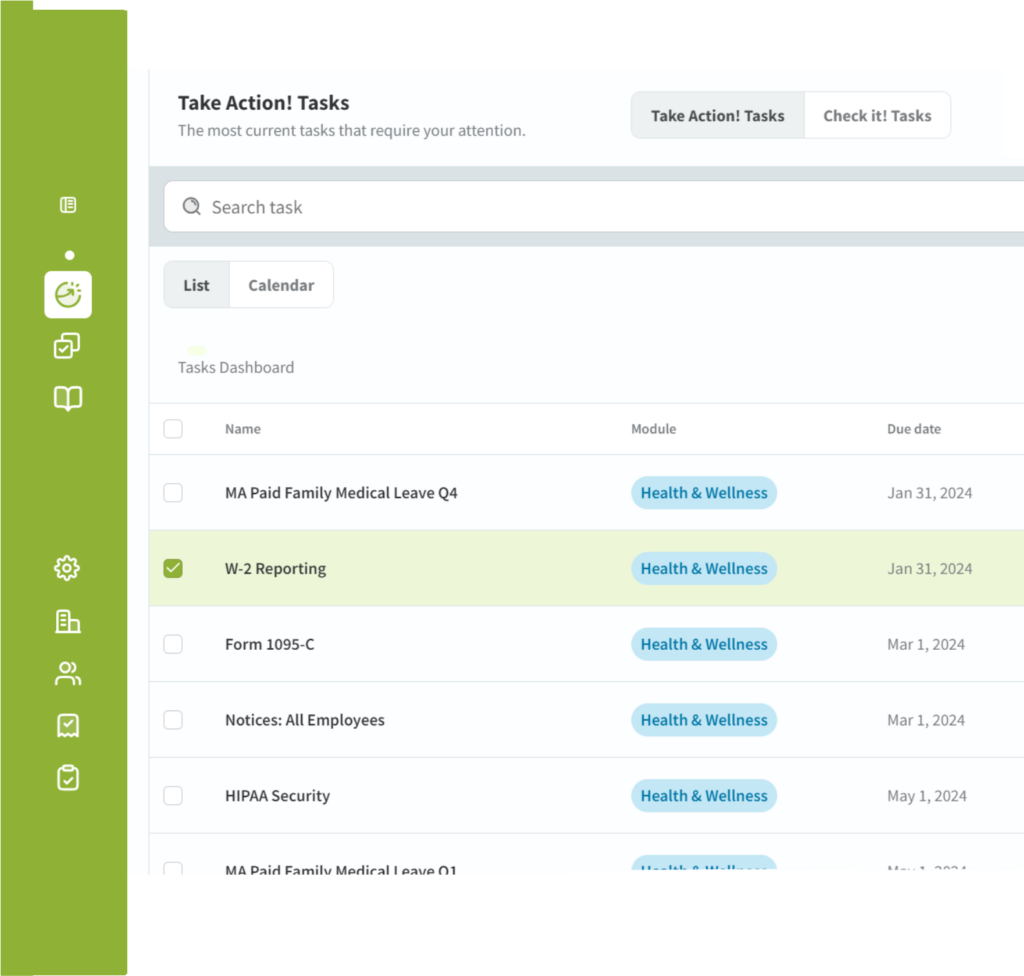MHPAEA Final Rule: New Compliance Requirements for Employers Starting 2025

MHPAEA Final Rule: New Compliance Requirements for Employers Starting 2025
Recently, the U.S. Departments of Labor (DOL), Health and Human Services (HHS), and the Treasury released the Final Rule implementing the non-quantitative treatment limit (NQTL) aspects of the Mental Health Parity and Addiction Equity Act (MHPAEA) and a Fact Sheet. This rule aligns closely with the proposed rule from August 2023. Employers and health plan sponsors must meet new obligations starting January 1, 2025, with certain provisions delayed until 2026.
What is the Mental Health Parity and Addiction Equity Act (MHPAEA)?
The MHPAEA prohibits group health plans and most insurers from applying stricter financial requirements or treatment limitations to mental health and substance use disorder (MH/SUD) benefits than to medical/surgical benefits. These limitations include non-quantitative treatment limitations (NQTLs) like prior authorization and medical management requirements.
Key Provisions of the Final Rule
The Final Rule offers detailed guidance to help plan sponsors and insurers comply with MHPAEA. Some key provisions include:
- Data Collection and Analysis: Plans must gather and analyze data to address disparities in access to mental health care and substance use disorder treatment.
- Non-Restrictive NQTLs: NQTLs for mental health and substance use disorder benefits cannot be more restrictive than those applied to medical/surgical benefits.
- Comparative Analyses: Plans must conduct comparative analyses evaluating network composition, out-of-network reimbursement rates, and prior authorization processes.
- Meaningful Benefits Requirement: Plans must provide meaningful benefits for MH/SUD in every classification where medical/surgical benefits are offered.
- Non-Discriminatory NQTL Design: Plans cannot use discriminatory data when designing NQTLs.
- Discriminatory Definition: The information, evidence, sources, or standards that used in creating and applying the NQTL are “biased or not objective” in a manner that results in less favorable treatment of MH/SUD benefits without legitimate justification.
- End of Opt-Out Option for Self-Funded Non-Federal Governmental Plans: Self-funded, non-Federal governmental plans can no longer opt out of MHPAEA compliance.
- Fiduciary Certification: Requires one or more named plan fiduciaries under ERISA to review the comparative analyses and certify that the fiduciary engaged in a prudent process to select one or more qualified service providers to perform and document a comparative analysis in connection with the imposition of any NQTLs that apply to mental health and substance use disorder benefits, as well as satisfaction of the fiduciary’s duty to monitor those service providers.
- This new obligation may expose plan fiduciaries to liability if they cannot show that they engaged in a prudent process.
- These certifications may be requested as part of the due diligence process in mergers and acquisitions.
Actions for Employer Sponsors Today?
- Plans must have a current Comparative Analysis available upon request and confirm that they have reviewed the conclusions reached on NQTL compliance.
- If a Comparative Analysis has not been conducted, engage a MHPAEA professional to complete this as soon as possible.
- Utilize the DOL self-compliance tool as a resource to assist in reviewing health plans.
Compliance Dates
The Final Rules will apply to group health plans and group health insurance coverage starting on the first day of the plan year that begins on or after January 1, 2025. However, specific provisions will take effect later:
- On or after January 1, 2026, the meaningful benefits standard will be enforced on the first day of the plan year.
- On or after January 1, 2026, the prohibition on discriminatory factors and evidentiary standards will apply from the first day of the plan year.
- On or after January 1, 2026, the requirements for relevant data evaluation and related comparative analysis provisions will also apply from the first day of the plan year.
Consequences for Noncompliance
Plan sponsors should note the stricter consequences for noncompliance under the Final Rule:
- Short Response Time for Government Requests: Plan sponsors must submit their comparative analyses within 10 business days of a Department request. If they find deficiencies, sponsors will have 45 calendar days to correct them.
- Public Notice of Noncompliance: If a Department finds noncompliance, the plan sponsor must notify all covered participants within 7 business days and will appear in the Departments’ annual Report to Congress.
- Stop Order for Noncompliant NQTLs: The Department may order the plan sponsor to stop using noncompliant NQTLs until they meet compliance, which could increase claims costs and provider fees.
Background: What is the Mental Health Parity and Addiction Equity Act (MHPAEA)?
The MHPAEA aims to ensure parity between mental health and substance use disorder (SUD) benefits and medical/surgical benefits. It prohibits group health plans and most insurers from imposing more restrictive financial requirements or treatment limitations on MH/SUD benefits than those applied to medical/surgical benefits. These limitations include NQTLs like prior authorization and medical management requirements.
In 2021, Congress amended MHPAEA, requiring plan sponsors to prepare comparative analyses documenting how NQTLs are applied fairly across MH/SUD and medical/surgical benefits. Historically, plan sponsors have struggled with compliance, and reports show that many are still failing to meet the standards.
Need Help Preparing for the MHPAEA Final Rule?
Given the complexities of the Final Rule and its consequences, plan sponsors should work closely with legal counsel and MHPAEA professionals.